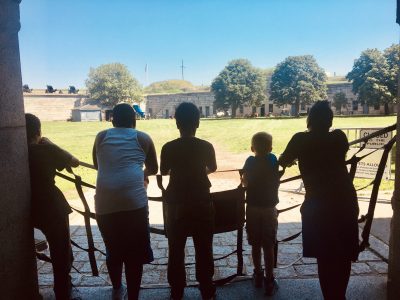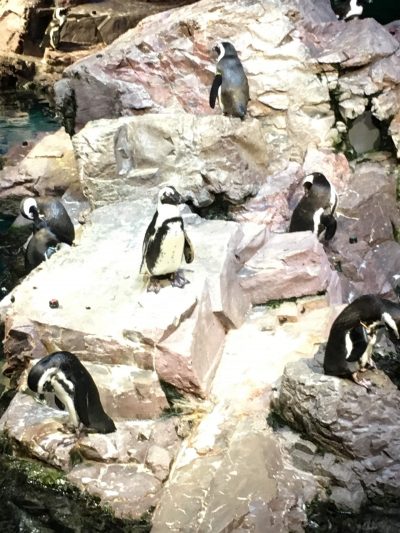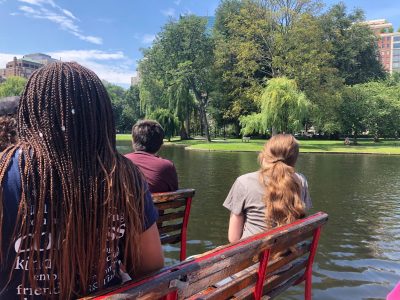Making Summer Gains
 With most COMPASS students having an Individualized Education Program (IEP), there is a worry that their academic year gains will be lost over the summer because it “breaks the rhythm of instruction, leads to forgetting, and requires a significant amount of review of material when students return to school in the fall” (Cooper, 2003). This is even more significant for COMPASS’ students because they have disabilities and/or come from lower-income households — children from low socioeconomic backgrounds tend to develop academic skills slower than their peers from higher socioeconomic status (APA, 2018). Taking all of this into account, COMPASS provides a six-week summer school program for approximately fifty K-12 students. During each week, the students receive academic and social enrichment, clinical support, and the opportunity to explore a variety of educational opportunities throughout Massachusetts.
With most COMPASS students having an Individualized Education Program (IEP), there is a worry that their academic year gains will be lost over the summer because it “breaks the rhythm of instruction, leads to forgetting, and requires a significant amount of review of material when students return to school in the fall” (Cooper, 2003). This is even more significant for COMPASS’ students because they have disabilities and/or come from lower-income households — children from low socioeconomic backgrounds tend to develop academic skills slower than their peers from higher socioeconomic status (APA, 2018). Taking all of this into account, COMPASS provides a six-week summer school program for approximately fifty K-12 students. During each week, the students receive academic and social enrichment, clinical support, and the opportunity to explore a variety of educational opportunities throughout Massachusetts.
The Summer School program is different from the normal school year in that there is a theme that the academic program follows – broken up into single or multiple modules. For example, the Lower School’s elementary students focused on learning about Italy (2 weeks), Mexico (2 weeks), and Asia (2 weeks). Additionally, the middle school students’ theme was Land and Sea: 7 continents and 5 oceans. All students participated in academic lessons based on their theme each day while also being able to take a wide variety of field trips to enhance their academic and/or social goals for the program. These field trips included going to Castle Island, the Franklin Park Zoo, the New England Aquarium, Boston Common, and other experiences.
 In addition to the experiences as part of COMPASS’ Upper School students’ academic curriculum, these students were provided opportunities to explore the Greater Boston area in search of connections to nature, job training opportunities, and just getting out of familiar routines. Each week, students were broken up into groups that either focused a variety of topics, such as on-the-job training (i.e. Culinary Arts), “around the town” (i.e. Isabella Stewart Gardner Museum), and outdoor education (i.e. visiting Castle Island).
In addition to the experiences as part of COMPASS’ Upper School students’ academic curriculum, these students were provided opportunities to explore the Greater Boston area in search of connections to nature, job training opportunities, and just getting out of familiar routines. Each week, students were broken up into groups that either focused a variety of topics, such as on-the-job training (i.e. Culinary Arts), “around the town” (i.e. Isabella Stewart Gardner Museum), and outdoor education (i.e. visiting Castle Island).
The combination of supporting students’ emotional and behavioral challenges along with traditional academic enrichment with experiential education is the hallmark of the COMPASS School – its Summer School program is no different.